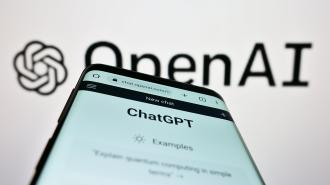OpenAI has begun rolling out plugins for its popular and powerful AI, ChatGPT. The tools are designed to help ChatGPT function better by allowing it to “access up-to-date information, run computations, or use third-party services,” the OpenAI announcement explains.
The initial wave includes plugins to take the hassle out of booking travel, buying groceries, cruising online, and doing math, AI consultant and former Meta researcher Rachel Wood explained.
So far, OpenAI lists 11 official ChatGPT plugins.
Tools for Expedia and Kayak are meant to help streamline travel booking, including “getting recommendations for all the places you can go within your budget” for the latter, and a plugin for OpenTable could help you book great restaurants at your destination.
ChatGPT plugins for Klarna and Shop will compare prices and search for items. Wood predicts a “new paradigm” of “prompt -> answer -> purchase” in retail.
A new Instacart plugin will allow users to create orders.
A video example from OpenAI CEO Sam Altman demonstrated how ChatGPT plugins can be used to answer specific queries. After installing the plugin for Wolfram — an “answer engine” that produces factual answers to questions using external research — the video asks ChatGPT what the current distance is from the Earth to Jupiter. Pulling straight from Wolfram’s computational abilities, ChatGPT returns the answer.
Joining the above in the initial launch are ChatGPT plugins for real-time economic data app FiscalNote; language tutor Speak; Milo, an “AI co-pilot for parents;” and Zapier, which automates web applications in your workflow.
ChatGPT plugins will be introduced gradually, OpenAI says, beginning with a small set of users and de-waitlisted developers, in an attempt to study and optimize them as they are released into the wild.
The incremental release will allow OpenAI to examine how the ChatGPT plugins are used in the real world, the impact they have on their users, and hopefully reveal safety and alignment challenges as they arise.
The latter refers to the AI’s ability to “align” itself with human values and intentions, which OpenAI believes will be crucial if an artificial general intelligence (AGI) is ever created.
We’d love to hear from you! If you have a comment about this article or if you have a tip for a future Freethink story, please email us at [email protected].





